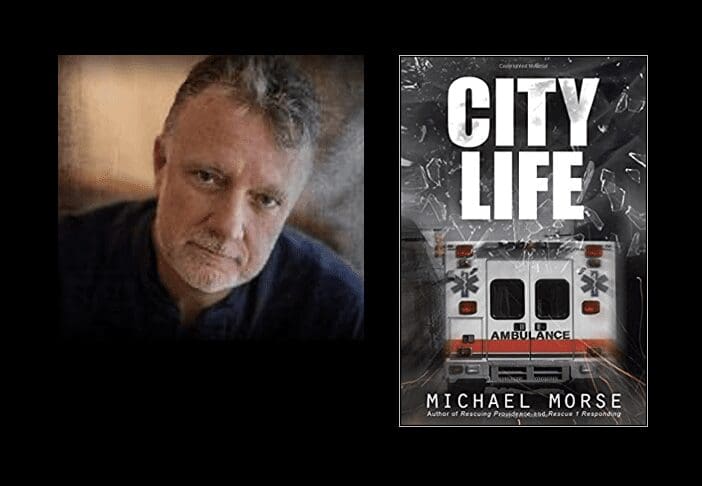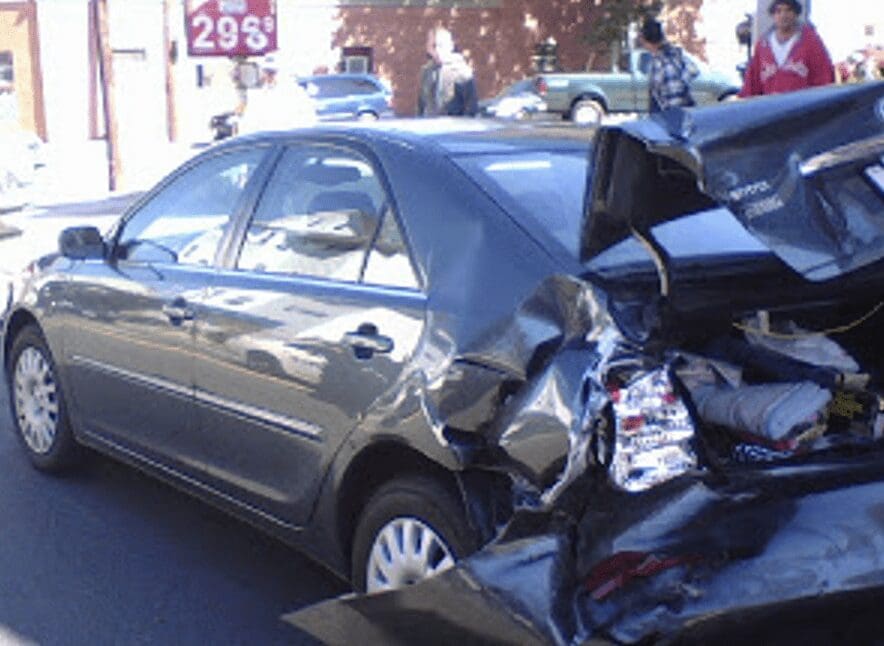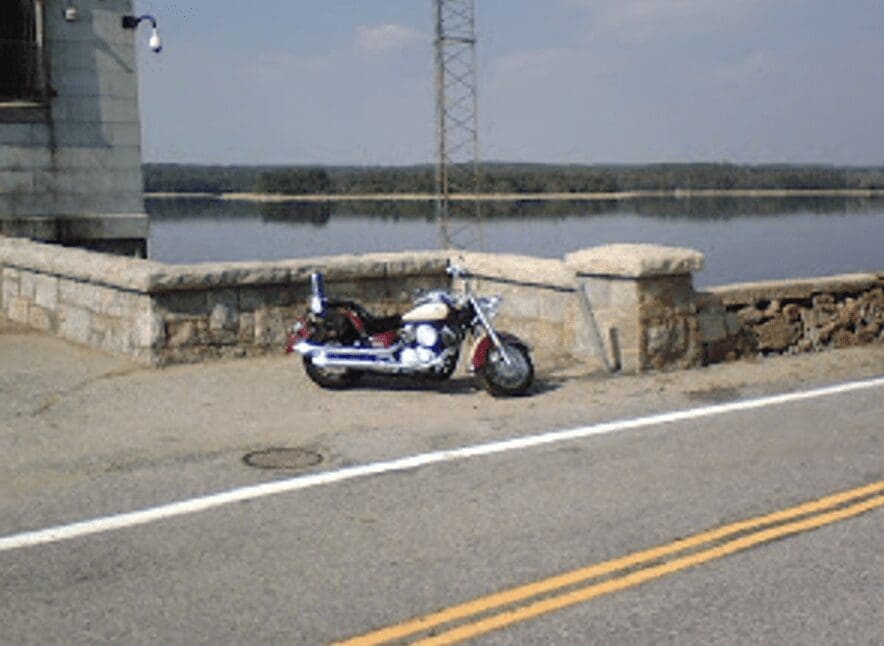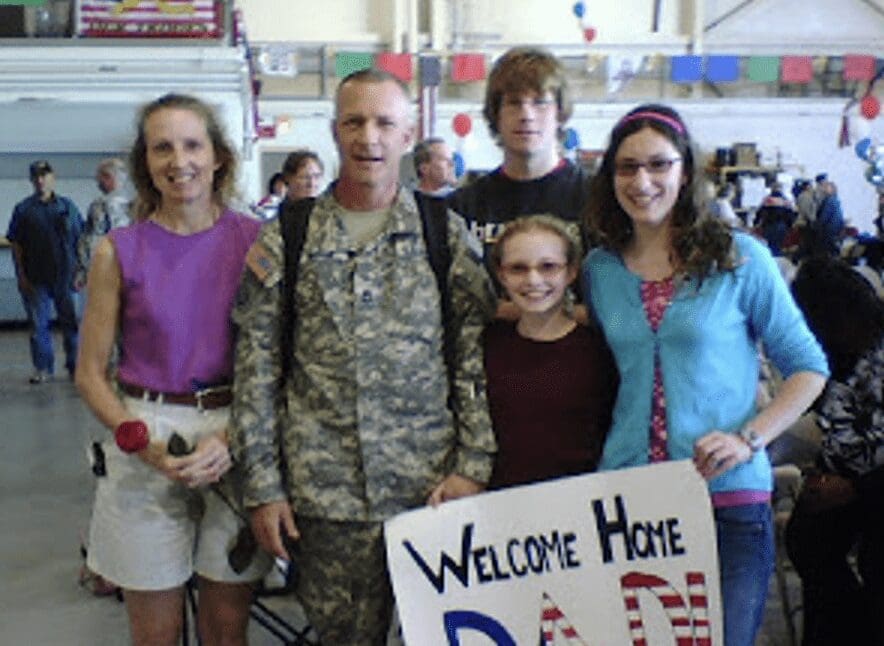Search Posts
Recent Posts
- Writer Herb Weiss’ 45 years of Advocacy on Aging now Archived at Rhode Island College Library Special Collection June 23, 2025
- Providence Biopharma, Ocean Biomedical, Notified of Termination of License Agreements with Brown University, RI Hospital June 23, 2025
- Networking Pick of the Week: Early Birds at the East Bay Chamber, Warren, RI June 23, 2025
- Business Monday: Dealing with Black and White Thinking – Mary T. O’Sullivan June 23, 2025
- Rhode Island Weather for June 23, 2025 – Jack Donnelly June 23, 2025
Categories
Subscribe!
Thanks for subscribing! Please check your email for further instructions.

Read With Us: CITY LIFE – a book by Michael Morse – Chapter 13
by Michael Morse, contributing writer
Chapter 13 – Helmets
He could have been my brother or friend or a guy I work with. If not for the drool dripping from the corner of his mouth and helmet he wore on his head, he looked like your typical thirty-eight-year-old guy. He lived with people three times his age, sick, dying people in need of constant medical supervision. I wondered how he ended up in a nursing home. The interagency report I read as we rode toward Rhode Island Hospital didn’t tell me much, only that he refused to take his medication because it was crushed in applesauce and was threatening the other patients and staff. He didn’t look very menacing to me, but then I’m not ninety years old and confined to a wheelchair or bed.
“What are you doing living in a nursing home?” I asked, not knowing if he was capable of answering. He pointed to his head.
“What’s wrong with your head?”
“Motorcycle.” He slurred the word the best he could.
“Accident?” I asked. He shook his head yes.
“Were you wearing a helmet?”
He pointed to the helmet on his head.
“Am now.”
I found out later he had suffered massive head injuries as a result of a motorcycle accident four years ago. His Harley was ruined when somebody pulled out of a side street in front of him. He wasn’t going that fast, maybe forty, but fast enough to land him in a nursing home being spoon-fed medication for the rest of his life, his only excitement acting up and scaring the old folks.
Some days I think I have things pretty much figured out. Days like this I just look at my patient, shake my head, and wonder.
Valium, Vicodin, and Nachos
Eventually, carrying people up and down stairs and into and out of the rescue takes its toll. Last week I felt something give. I’ve been hobbling around for about ten days now; back injury. It happened while transporting a twenty-five-year-old patient from her OBGYN’s office to the emergency room at Women and Infants Hospital. The buildings are connected; the patient could have been transported to the ER by hospital staff in less than five minutes without ever leaving the building. Instead, the person in charge of the patient at the doctor’s office decided that 911 was the best way to transport the patient, noncritical, contractions about eight minutes apart, no complications.
I digress. Pent-up frustration at the abuse of the 911 system, I guess.
“Fat, drunk, and stupid is no way to go through life, son,” the dean told Kent “Flounder” Dorfman in Animal House.
Valium, Vicodin, and nachos aren’t much better. I’ll be off the couch in a few days. I’m looking forward to getting back to work.
Never Forget
The president of Local 799, Paul Doughty, asked me to be the keynote speaker at this year’s 9-11 memorial service at police and fire headquarters. It was short notice, but I put the following words together just in time. I thought I would share them with you.
It is vitally important that we come together on this date to honor those who lost their lives on September 11, 2001. It’s hard to believe, but six years have passed. The memorials have grown smaller, the painful memories easier to bear. Some people prefer to block it from their minds, act as if it never happened. That’s their choice, not ours. Time marches on; new experiences take place of memories we once thought would be with us forever. From the depths of sorrow, we find hope. It’s a good and necessary thing. Without it we would be crushed by the weight of sorrow that builds as the years go by.
We’ve learned to live with the painful memories from that day, but we will “never forget!” It’s up to us to keep the memory of the fallen alive. This isn’t just another day. It’s a day when every American, especially firefighters, needs to stop and think of what we have, those who fight for it, those who died protecting it, and vow to keep their memory alive.
Never forget that every time we put our gear in the truck, we honor the memory of the 343 firefighters who died while doing their job six years ago. Every one of us knows we may be asked to risk everything while doing our job. It’s not heroic or glamorous or anything else we may have thought it was before we took the oath. It’s simply what we do. We are born with it; it’s in our blood. Some see it as a curse; most consider it a blessing.
The firefighters that died that day were people like us, proud of their profession, their families, and their ability to save lives and protect property. I’m sure there was a little swagger in their walk that morning when they started their shift, confident they could handle anything thrown at them and somehow walk away. We think the same way; if we didn’t, we wouldn’t be wearing these uniforms. But with that swagger comes a price. People expect us to save them, and we usually do. Sometimes we don’t, and sometimes we die with them.
Thousands of regular citizens showed up for work that day, entered the elevators, sat at their desks, talked at the water cooler, and got prepared to start their day. Nothing could have prepared them for what happened next. Most of those that weren’t killed instantly waited. For us. We responded. As the world watched the drama unfold on their televisions, helplessly, we responded.
If they thought the job hopeless, they never would have tried it. They thought there was a chance, and they marched to their deaths. They didn’t go to work that day expecting to die. None of us go to work expecting to die. Ours is a different profession. We take risks. We work hard and punish our bodies, not because we have a death wish; rather, we have a wish that we can make things right when they go horribly wrong, as they did on September 11, 2001. Those who entered the towers thought the poor souls on the upper floors had a chance and they went to go get them.
When the first tower fell, I knew. Before the top floor hit the ground, I said to my wife, “We just lost a lot of firefighters.”
“Why were they still in there?” she asked.”
“They were doing their job.”
She looked at me, shook her head, and looked back at the TV, knowing if I were there, I would have been in the tower. It’s harder on our families than it is on us.
We owe it to the firefighters who died that day to keep getting on that truck and doing our best, whether it’s in New York City, Providence, Warwick, or Cumberland, and to keep doing what they did six years ago for them the final time: our duty.
I learned an important lesson that day and the weeks and months to follow. The people we are sworn to protect are worth protecting. We stood together as a nation like nobody could have dreamed possible. We remembered what it meant to be Americans; we stood together, cried together, and together have moved forward. Racial and economic divisions didn’t matter, differing political philosophies were irrelevant.
In many ways we’ve returned to our pre-911 mindset, and that is unfortunate, but the togetherness and resolve that existed then still resides in all of us, and comes to the surface when necessary. I know it’s there. I remember, and that is what keeps me going.
It’s good to be alive, and an honor to be part of the Providence Fire Department and member of Local 799, but most of all, it’s good to be a firefighter.
Fifteen
Body language, facial expressions, a few common words spoken are usually enough. So young, I thought, holding my index finger and thumb as if holding a card. She reached into her purse and produced an ID. It was a Guatemalan embassy card. The language barrier was easily overcome, the worlds that separated us impossible to breach.
Even if I knew how to say it, I wouldn’t give her the same speech saved for my own child. She smiled radiantly and looked at me as I filled out the report. Any wisdom I had to share with her I kept to myself. What to one child is a bad decision is a lifesaver to another. If this were my daughter, I would tell her she had the rest of her life ahead of her, friends, dates, proms, graduation, college, career, and a world to conquer.
I smiled back at the fifteen-year-old girl sitting across from me. Her future grew inside of her, thirty-seven weeks along. Anchor babies, some people call them.
Snoring
He lay crumbled at the bottom of a cement stairway, his head at an odd angle, snoring. There are drunk snores, fake snores, sound asleep snores, and snores like this one; a get him on oxygen, immobilized, extricated, IV’d, monitored, medicated, and to the trauma room snores.
We’ve done this thousands of times. The patient was in the trauma room ten minutes later, the operating room half an hour after that. The people I work with are truly the best around. Engine 3 assisted on scene, the Rhode Island Hospital trauma team took over, then the operating room crew from there. He’ll probably end up in the intensive care unit, then a “regular room” and hopefully some therapy, home care, and with a little luck full recovery.
Or, he could never regain consciousness and all of our work will be for nothing.
Unexpected Jolt

This guy’s coffee had a little extra “kick” this morning. He had stopped to get a cup of joe and say hello to some friends; when he got back into his car with his coffee another car clobbered him. A few months ago a nineteen-year-old kid was hit in this exact spot so hard he was thrown from the rear window and killed. My patient was lucky, minor injuries. We secured him on a spine board, applied a cervical collar, and transported him to the Rhode Island Hospital emergency room.
The neighbors formed a posse and found the alleged driver about a mile away, inside a coffee shop, having a coffee. The cops told me later the man was heavily intoxicated.
Don’t people go to church on Sundays anymore?
No Help Here
We’ve got a problem. Mentally ill patients have nowhere to go. It’s a catch-22 situation; those with the most severe problems cannot keep jobs and have no insurance. Cuts in state spending have reduced the number of “uninsured” beds in the area hospitals. These folks have nowhere to go when they have a breakdown.
A fifty-year-old guy who looked forty called for help this morning. They said he had a knife and intended to kill himself. The police arrived first and found no weapon, so we were called in. The man was obviously depressed. He sat on the curb in front of a dilapidated house in South Providence. The house needed to be razed and rebuilt but there were signs of life there. I asked him if he lived there.
“I wish.”
He’s been staying in homeless shelters for years, can’t keep a job, can’t afford the psych meds that could help him, and can’t find a reason to go on living. He’s been incontinent for two days now, the evidence clinging to the bottom and sides of his sneakers.
“Get in the truck,” I said. Al put some extra sheets on the stretcher and we got moving.
“I just can’t hold it anymore,” he told me when I asked about the mess.
He stared blankly at the ceiling as we rode toward Rhode Island Hospital. There he will be given a psych evaluation. If he is lucky he will be given a bed and proper treatment in a psych ward somewhere—Kent Hospital, Butler, or the Jane Brown Building at Rhode Island Hospital. More likely he will be put into the clinical decision unit at the emergency room until he is cleared. That could take days. The lights never go out; the space is shared with the dozens of intoxicated persons we take in from the streets. He’ll be forced to lie in bed and listen to the madness that surrounds him. If he breaks and gets overactive or vocal he will be restrained.
I wanted to help this man get back on his feet. Instead, I delivered him to the door of more madness.
Al knew what I was feeling after we brought him in.
“What are you going to do?” he asked, shaking his head, knowing there was no answer.
“Rescue 1 in service,” I said into the mic, and we rolled back into the city.
Taint
I was a little disappointed to find my patient alert, conscious, and ambulatory. There was some blood spattered on a kitchen chair. A lady with a bucket and mop smiled at me and finished washing the floor. Not quite the scene I had envisioned during the five-minute response time. We were dispatched for a severe upper leg laceration from a power saw. Don’t get me wrong, I don’t want to see anybody lose a limb or bleed to death, but it is a letdown once you have yourself prepared for the worst.
My patient was an affable nineteen-year-old who was helping his uncle renovate their hundred-year-old home. Places like this are sprouting up everywhere I look, little gems in the desert. A freshly painted fence adorned with colorful mums led us into the place. Emelio, the wounded worker, was putting on a robe in another room while we waited. The uncle took off his tool belt and waited with us.
“Did you do these floors?” I asked.
“Southern yellow fir,” he said, proudly. “You can’t buy this now, all gone.”
I had the same flooring in my last house, beautiful stuff, once refinished.
“Your place is looking good,” I complimented him. They had done a lot of work. When they finished it would add value to the entire street. Soon, I hope, the rundown places will be out of place here. Pride of ownership does a lot for a neighborhood.
Emelio limped out of a bedroom and walked to the truck, his uncle coming along.
“What happened?” I asked.
“I sat on a nail. It bled for a while but it’s stopped.”
“Where is the puncture?”
He looked miserable, trying to explain. It must have been embarrassing to a nineteen-year-old kid.
“It’s kind of at the top of my leg, uh . . . kind of near my . . . umm, testicles, but a little behind . . . umm. …”
“Did you puncture your anus?”
“No, a little behind.” The poor kid was squirming, didn’t know what to say.
“Oh, your taint,” I said and started the report. He looked confused, but relieved.
His uncle asked, “What’s a taint?”
“It ain’t your balls and it ain’t your ass. Taint.” I shrugged my shoulders like this happened every day and kept on writing.
They almost fell out of the truck laughing. Nothing like a little male bonding to set things straight.
Nice Day

I rode past my brother’s house today, forgot the kids are all in school. Beautiful day for a ride anyway. A couple of waterfalls, windy country roads, little or no traffic, and the smell of late summer woods to keep me company. I had to stop and take a picture here; a quick shot from my phone isn’t as good as a panoramic view of the Scituate Reservoir from the middle of the bridge, but it’s better than nothing. Bob will be home in a week and a couple of days. Can’t wait.
Sorry, Bro, but you can’t have your bike back. You survived Iraq, I’d hate to see you get hurt on your motorcycle, so for your own good, I’m keeping it!
Piling On
The next time I complain about my back I’ll remember Serena. Fifty-seven years old, pretty face, nice family, room full of good books and movies and a few other things. Congestive heart failure, COPD, renal failure, diabetes, left leg amputated, cancer, gangrene, chronic nausea and vomiting, to name a few. She smiled between gasps for air on the way to the hospital. The strength of the human spirit endures, and makes my minor pains just an annoyance.
Soldiers
They went to war. Every one of them left somebody behind, someone who cared for them, loved them, and would never recover if they were lost. They had no idea what to expect when they boarded that bus last September, only that some, or all of them might not come back. Well, they are coming back. Finally, they’re on their way home.
Behind the hugs and handshakes, pats on the back, and all that lies something deeper.
“Welcome home” is what I’ll say when they get off the bus. What I feel I know I’ll never say out loud. It’s just not something that comes easy to me.
You stood tall, conquered your fears, did your job and did it well. You endured months of loneliness in a hostile desert, saw things that will haunt your dreams forever. You did what was right, not because somebody told you to, but because you said you would do what it takes when you joined the Guard. You were good to your word.
Nobody can take that away from you. For the rest of your lives you will carry with you the memories. Some people may forget what you did, but those are the ones who never cared to begin with. They wouldn’t stand up for themselves in times of trouble. You stood up for them and the rest of us, and for that, those of us who do care are forever grateful.
Things haven’t changed much since you were gone. We’ve aged a year, and so have you. Something grew during that time. Something that can’t be seen unless you look closely. People will never look at you the same way again. You may not feel differently, but we will see you in a different light. We’ll see what you are—valiant soldiers who have earned our respect.
Enjoy it. Few deserve it, most will never experience it, but you will wear it for as long as you live.
Thank you, Brother, and all the members of the 1207th Transportation Company of the Rhode Island National Guard.
Welcome home.
Men of Providence
We had a rash of wife beaters last night, three in a row between ten and midnight. An eighteen-year-old girl was hit in the head with a baseball bat; she was dazed but conscious. When we arrived on scene she was holding a ten-month-old infant, swaying from side to side, barely able to stay seated. She handed the baby off to her brother and came with us to the hospital. Twenty minutes later, a few blocks away another girl ran from her home, broken cell phone in her hand, new wounds included pain in her chest from being kicked, a lacerated nostril from where her nose ring used to be before her “boyfriend” ripped it out, and abdominal pain from more kicks. Bruises covered her arms legs, and torso, evidence of months of abuse. Another girl was found standing on Broad Street with no shoes bleeding from her mouth. Her boyfriend punched her in the face and threw her out.
Together Again

As soon as the two C-130 transport planes appeared on the horizon, the crowd erupted. Families, friends, politicians, the Patriot Guard; everybody cheered. Flags waved as the planes roared overhead. They banked sharply left and rolled out of sight. A minute later one, then the other taxied past us on the runway. In perfect precision they turned, faced us, and stopped. It was truly beautiful. The soldiers disembarked, stood in formation for a minute, then joined their families. It was a perfect moment. I took this picture and left. I’ll catch up tomorrow. The people fighting this war are an incredible group of people. I’m proud to know them.
___
To read Chapters 1-12 of CITY LIFE:

Michael Morse, mmorsepfd@aol.com, a monthly contributor is a retired Captain with the Providence Fire Department
Michael Morse spent 23 years as a firefighter/EMT with the Providence Fire Department before retiring in 2013 as Captain, Rescue Co. 5. He is an author of several books, most offering fellow firefighter/EMTs and the general population alike a poignant glimpse into one person’s journey through life, work and hope for the future. He is a Warwick resident.

